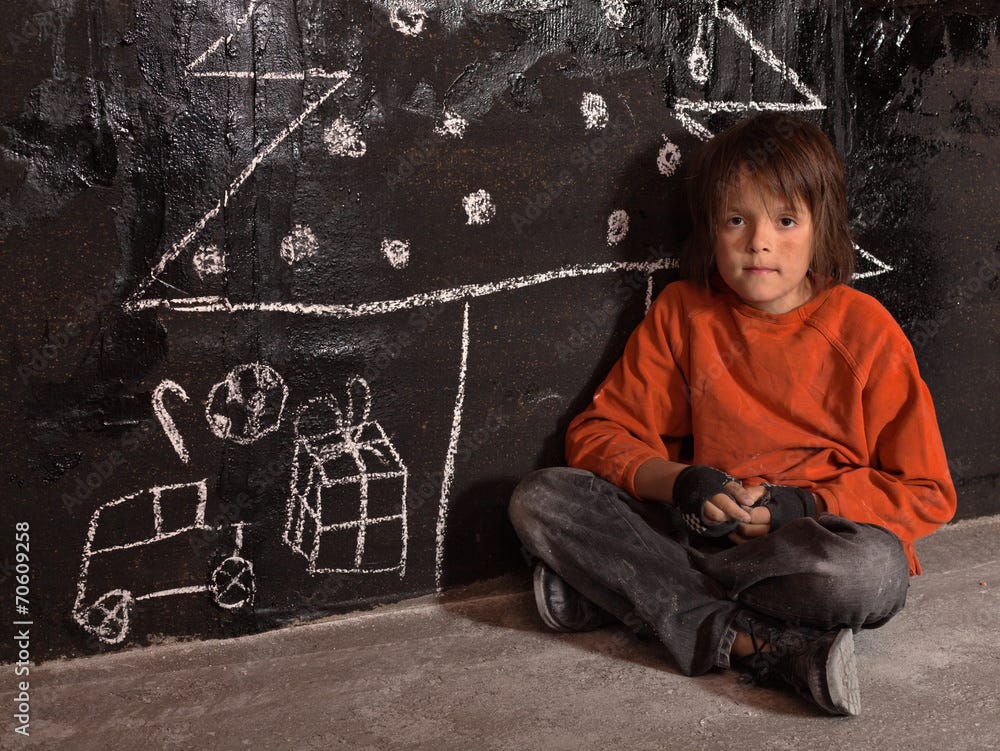Christmas Charity Gone Bad
Giving from a distance during the holidays can lead to tragic, unintended outcomes
“DD” didn't know which charity or church in Grand Rapids was responsible. All he knew was that they brought gifts to his house every Christmas. As his mother welcomed the strangers who were delivering the toys, she thanked them with many hugs and tears. While the volunteers were there, she placed the gifts under the tree. The volunteers left, believing they had fulfilled the hopes and dreams of another needy family during Christmas. However, their generosity and kindness had actually contributed to a recurring nightmare.
In the days leading up to Christmas, DD and his younger siblings wondered if this would finally be the year their mother would let them open and keep their presents. However, just a few days before Christmas arrived, they had to confront a harsh reality. While they were sleeping, their mother gathered the Christmas presents from under the tree, unwrapped the toys, and made her way to the pawn shop or, if the store tag was still attached, returned them to the retailer.
Once she had the money in hand, she hastened to the drug house, where she smoked all of it on crack. The toys given to her children had become a source of income to pay for her drug habit. DD, now a grown man in his thirties, confesses that his childhood memories of Christmas have inflicted more pain than joy. As a former gang member, he finds it easier for him to cope with the grief and sorrow of losing several friends to the violence of the streets than to relive his childhood trauma, marked by shattered hopes and dreams during the Christmas season.
Let me assure you that the majority of families in our neighborhood who are in need are not led by parents struggling with drug addiction.
However, here lies the issue. This well-meaning charitable group inadvertently made things worse, not because they were trying to show kindness to underprivileged children in our urban community but because they lacked a genuine relationship with the families they were attempting to help.
I want to believe this tragic, unintended outcome is the exception rather than the rule among churches and charities, especially during the holiday season. However, I am left to wonder.
I wonder because I know my heart and motivations. Through many conversations with fellow non-profit colleagues, I realize they share similar struggles. As the primary fundraiser for Urban Transformation Ministries (UTM), here is my temptation. The more people I can show that we're serving or helping, the more I can impress donors, leading to more funding. So, I'm tempted to cut corners to inflate the numbers, ultimately leading to less time forming meaningful relationships with those we serve. When UTM staff and volunteers spend less time cultivating these relationships, we stray from the Biblical model of compassion.
In Scripture, compassion is understood as "to suffer with." However, how can we indeed "suffer with" the poor and marginalized in our communities if we do not have a real relationship with them? To build such relationships, I must spend extended time alongside those who are struggling, getting to know the ins and outs of the complex circumstances that led to their poverty. More often than not, these situations are a hot-mess composite of structural injustices, unfortunate circumstances, and poor choices made in a stressful, survival-oriented environment.
The "walk-alongside" relationships are indispensable in helping the poor acquire the skills and resources necessary to break the cycle of poverty so they can enjoy the dignity of providing for themselves and their families. These same relationships are essential as we share the hope found in Christ, which heals, liberates, and transforms the poor and oppressed. In contrast, the Americanized warm, fuzzy version of compassion doesn't require "suffering with" those in need. In this perspective, our personal happiness frequently becomes the primary motivator for our acts of giving.
If I'm honest with myself, I really desire the dopamine rush from helping those less fortunate, especially during the holidays. While there's nothing wrong with feeling joyful emotions from serving and helping the poor, if I'm not careful, my own gratification can eclipse the Biblical model of compassion that is modeled and demanded in Scripture.
So, what's the solution? Should we stop contributing to toy drives during Christmas? Is it wrong to give so needy children can enjoy Christmas from a distance? The short answer is no. However, I suggest that we partner with charities and church ministries that have baked strong "walk-alongside" relationships of trust into the DNA of the population they serve. The more loving, supportive, and meaningful relationships we have with the poor and needy, the less likely we will see situations like DD’s story arise.




